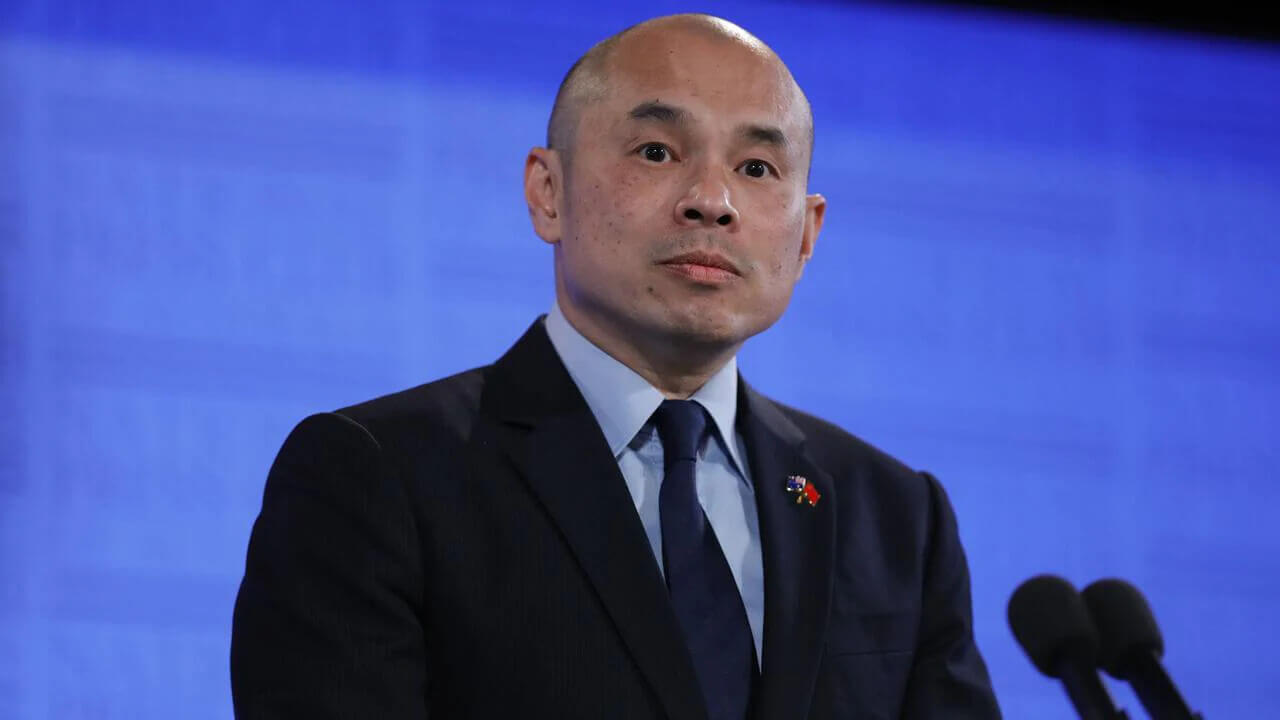A senior Chinese diplomat took aim at Australian Prime Minister Scott Morrison’s decision to support an independent inquiry into the origins of the coronavirus. Deputy Head of Mission Wang Xining said that placing the blame solely on China was “not fair” and threatens to cause a “rift” in trade relations between the two nations, adding that China would never try “turn Australia into the People’s Republic of China” and so Australia should not interfere in China’s affairs.
He went on to say that Morrison had “hurt the feelings” of the Chinese people with its “shocking proposal”, describing the betrayal by China’s “good friend” as akin to that of the tale of Julius Caesar, who, in the play by William Shakespeare, was murdered by his friend Marcus Brutus.
During his speech, the Chinese diplomat also reaffirmed the nation’s commitment to “building [a] socialist democracy”, and its goal of achieving “socialist modernization” by 2035”. Amid criticism that China is growing increasingly influential over international organizations, such as the World Health Organization (WHO) during the ongoing pandemic, he said that China remains focused on building “harmony based on convergence, unity based on diversity, righteousness based on commitment, [and] equality based on mutuality”.
He also mentioned that China welcomes foreign business and will lower tariffs and other protectionist measures to expand bilateral and multilateral trade ties. However, just last week, China’s Ministry of Commerce (MOFCOM) launched an investigation into Australia’s wine industry that aims to determine whether Australian winemakers have been dumping bottles containing less than two liters in China at artificially reduced prices in order to crowd out local producers. MOFCOM is also mulling over launching a parallel countervailing duties investigation into whether Australian wine exports are being propped up by government subsidies.
Tensions between Australia and China have been escalating for quite some time now, beginning with Prime Minister Scott Morrison and Minister for Foreign Affairs Marise Payne’s calls for a global investigation into the source and spread of the coronavirus, and China’s culpability. These teething problems have only been cemented by Australia’s decision to bow under US pressure to pull Chinese telecommunications giant Huawei from its 5G network, its criticism of the new security law in Hong Kong and human rights abuses in Xinjiang, its position that China’s territorial claims in the South China Sea have “no legal basis”, and its accusations that China is engaging in cyber attacks.
The most recent investigation by China into Australian wine exports follows a similar path to that which it took with regards to Australian barley exports in early May. At the time, MOFCOM placed tariffs of up to 80% of Australian barley producers for dumping. China has also suspended imports from four Australian meat processors; Australian coal exports have also been subjected to increased trade barriers. In addition, MOFCOM has threatened a whole host of other measures, including stricter quality checks, anti-dumping probes, tariffs, and customs delays on a host of other Australian imports, including wine, dairy, seafood, oatmeal, and fruit.
Amid these developments, Australian Minister for Foreign Affairs Marise Payne has accused China of “economic coercion”. However, these accusations were batted away by Wang Xining, who said that Australia must accept “some foreign influence” in order to “enjoy today’s economic affluence, cultural diversity, and intellectual richness”. He maintained that China holds a policy of ‘non-interference’ in the internal affairs of other countries; however, he sought to clarify the difference between ‘interference’ and ‘influence’. He said, “For me, from the etymological point of view, influence carries a neutral meaning.” He went on to say that influence refers to a “natural flow of exchange and contact with mutual effect” and entails some form of ‘foreign influence’.
Nevertheless, Chinas number two diplomat did offer some hope for a recalibration of Australia-China ties when he said that “our partnership will not be wrecked by differences or disagreements as long as we reach each other well and approach all the issues with goodwill”.
Senior Chinese Diplomat Decries Australia’s Betrayal in Supporting Coronavirus Inquiry
Deputy Head of Mission Wang Xining said Australia’s blame game was “not fair”.
August 26, 2020

IMAGE SOURCE: THE AUSTRALIANChinese Deputy Head of Mission Wang Xining
